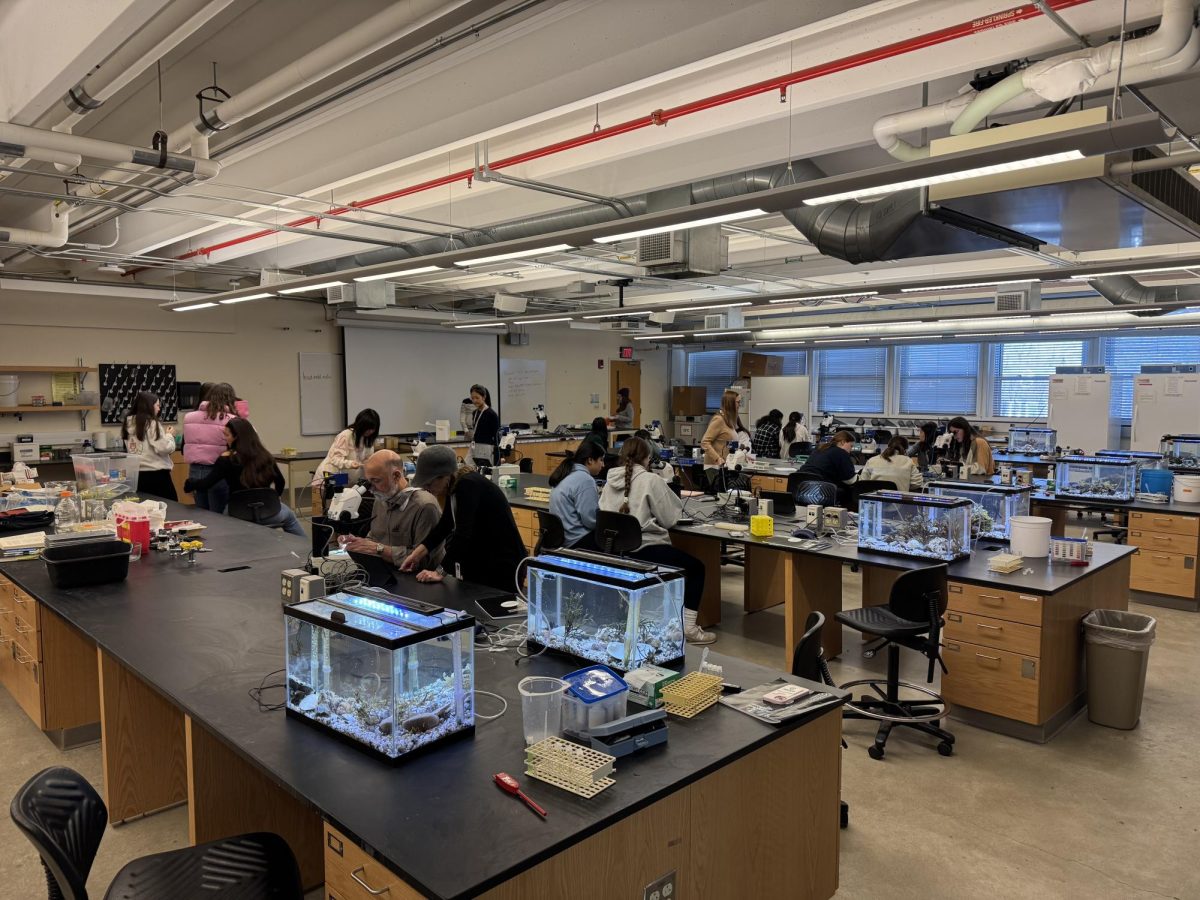Sleep deprivation poses both short-term and long-term threats to one’s health and wellbeing

“It’s different every day. I don’t have a normal sleeping schedule,” she said. “There’s really not a common thread.”
But Christina isn’t the only Hockaday student who suffers from lack of sleep. According to Leon Rosenthal, M.D., a sleep specialist at Sleep Medicine Associates of Texas, although “everyone needs a different amount [of sleep],” a teenager should aim for about eight to ten hours of sleep each night.
In a survey of 98 Upper School students, approximately 93 percent reported that they sleep less than what is recommended, and 59 percent said that they would sacrifice sleep for academic and social reasons.
A lack of sleep stems from a number of causes, some of which are biological and involuntary. Hockaday students with these sleep problems sometimes approach Dr. Margaret Morse, Upper School Counselor, for advice.
“I’ve had some people come in and say, ‘I can’t fall asleep’ or ‘I wake up and can’t go back to sleep,’” Morse said.
Similarly, Rosenthal said he often sees patients who suffer from insomnia, or the inability to fall asleep.
However, sleep deprivation is almost always a conscious choice for students.
“It’s mostly because I procrastinate,” Christina admitted. “And then I start my homework at one in the morning. I’ll do anything to not do my homework.”
She often takes naps for boosts of energy and to catch up on loss of sleep from the night before. Morse, however, advises adolescents against sleeping at various times at periodic intervals throughout the day.
“The two or four-hour nap is messing up your sleep cycle,” she said. “You’ll get the deep restorative sleep so that you won’t feel tired when you wake up, but what you’ve missed is all the REM sleep, where all the memories and learning get consolidated.”
Many times, students will feel pressured to stay up later to finish school assignments, meet deadlines or complete other responsibilities. During times of exams or other stressful periods, they are especially prone to sleep deprivation.
After all, “most things don’t start when our biological clocks want to start,” Rosenthal said.
Those in rigorous academic environments often experience sleep deficiency, and some Hockaday students cite lack of sleep as part of the school’s culture.
“No one gets eight hours of sleep here,” junior Katherine said.
Morse, however, recommended that students, when faced with finishing homework and obtaining a sufficient amount of sleep, should opt for sleep. While noting the pattern in Hockaday students to “sacrifice their health for grades,” she said that “at some point, an all-nighter really won’t benefit.”
But Morse said she is not as worried about the occasional all-nighter as she is about the long term consequences that may occur as the result of prolonged lack of sleep. According to her, depression is sometimes linked to sleep deprivation.
“You’re irritable, you’re cranky, you’re sad, you can’t concentrate,” she said. “Sleep deprivation can look a lot like depression.”
Rosenthal identified a subset of people who suffer from insomnia, when not treated properly, has been shown to have higher rates of depression. Sleep allows the body to repair and produce new cells and support the immune system, Morse explained. In order for one to obtain the benefits that sleep provides, she must undergo the four levels of sleep that vary in depth and length and alternate during each sleep cycle.
A major function of sleep, according to Rosenthal, is the release of growth hormones, especially critical for developing teenagers.
“There is evidence that people who don’t get enough sleep don’t learn as people who sleep well and have higher rates of obesity.”
Among the stages, Stage IV, the deepest level of the four, and rapid eye movement (REM) are the most important. People who receive only a few hours of sleep will most likely reach Stage IV deep sleep but lose the majority of the REM sleep that is crucial for information retention and storage.
Additionally, sleep deprivation can result in drastic behavioral changes. Ninety-two percent of Upper School students notice a change in either themselves or in others.
“Whenever I pull all nighters, I’m just in the worst mood ever the next day,” Christina said. “Every single time I’ve pulled an all nighter, I’ve had a mental breakdown the next day.”
With all the crucial benefits sleep provides, Rosenthal urges students to rectify any problems they may have with sleep.
“Like everything else you do with a teenage life, prioritize,” he said. “People should be able to manage their sleep schedules.”
-Amy


